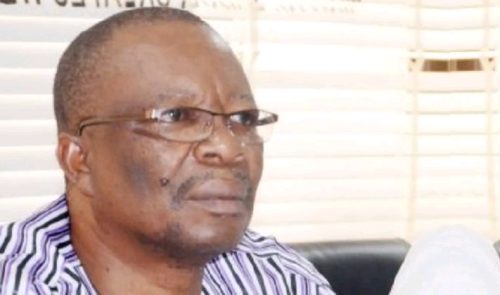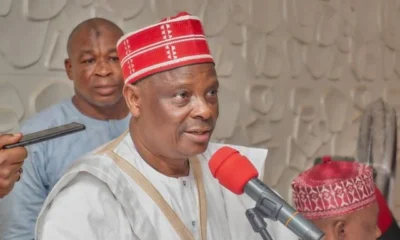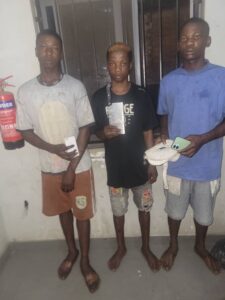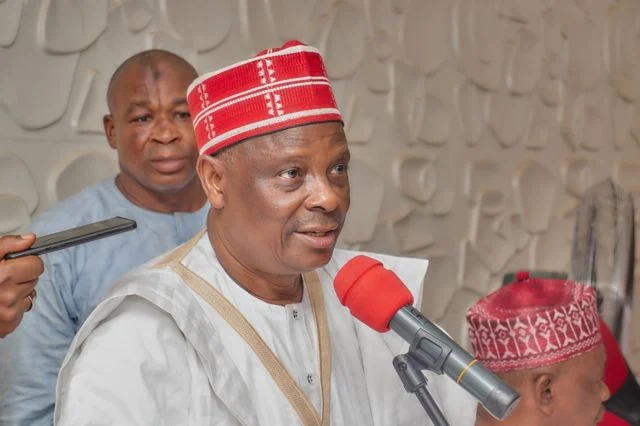The Academic Staff Union of Universities has raised the alarm over the exodus of lecturers from the nation’s universities for greener pastures abroad.
The union attributed the development to the Federal Government’s poor treatment of its members which it said had forced many to venture into other sources of livelihood.
According to The Punch, the National President, ASUU, Prof Emmanuel Osodeke, lamented that many lecturers had taken to farming and other economic activities, while a large number had left the country.
Osodeke spoke in reaction to the government’s refusal to meet some of their demands, including the payment of seven months’ backlog of salaries accrued during the strike.
It was earlier reported that the union had embarked on four strikes totaling 578 days under the Muhammadu Buhari regime. The current strike by ASUU started on February 14, 2022, and entered its day 188 on Monday (today).
In 2017, the union went on strike for 30 days; in 2018, the lecturers shunned work for 90 days while in 2020, the public universities were shut down for 270 days.
ASUU accused the government of failing to release the revitalization funds for universities; failure to deploy the University Transparency Accountability System for the payment of salaries and allowances of university lecturers.
ASUU had also demanded the release of earned allowances for its members; release of the whitepaper report of visitation panels to universities and renegotiation of the 2009 FGN/2009 agreement.
Speaking on the mass exile of lecturers from the university system, Osodeke stated, “So many lecturers are leaving to engage in farming and others; lecturers are tired of the treatment they’re receiving from the government and because of this, they are looking for alternatives. So many more will leave even after the strike too.
‘’I pity the country; Nigeria will be the loser for it. Instead of coming to the table; look at how they will solve the issue, rather, they believe in punishing lecturers. It’s so sad. Your lecturers went on strike, you believe they will become hungry and come back to beg. Many lecturers will also leave to venture into other areas; some are also looking at becoming self-employed.”
The ASUU Chairman, University of Lagos branch, Dr. Dele Ashiru, revealed that more than 70 percent of the brightest brains in academia had left the country, adding that the government had been so disrespectful and insensitive to the scholars.
“The impact of the government’s insensitivity and deployment of the weapon of hunger might not be immediately known until after the strike. As I speak with you, more than 70 percent of bright and promising young academics retained by the university through mentorship have all left the country for greener pastures due to the poor conditions of service in Nigeria.
‘’Those that are left are on the verge of leaving. No government in the history of Nigeria has been so insensitive, brash, and disrespectful of the best brains in the country. This is unfortunate and a shame,’’ the don lamented.
Ashiru, in an interview with Arise TV, monitored by one of our correspondents on Sunday, said the union was not going to call off its strike action as done by the other academic unions.
He said, “ASUU is a union of intellectuals, we don’t look at what others do to make our decisions. We make our decisions based on verifiable facts and the facts available to us have not shown this government to be a responsible and sensible one.”
Options for lecturers
Corroborating his colleague, the Chairperson of ASUU, University of Uyo chapter, Dr. Happiness Uduk, confirmed that some lecturers had left the system.
She said, however, that she could not specify how many of them had already left UNIUYO.
She stated, “I cannot tell you how many there are because I am not sure about it. But I don’t think what is happening in other universities is different from ours. It is true that people are getting opportunities and leaving the system; we have heard about people who have left already.”
It was also learned that some lecturers at the Obafemi Awolowo University, Ile-Ife; the Federal University of Agriculture, Abeokuta, and the Olabisi Onabanjo University, Ago-Iwoye, Ogun State, had similarly resigned and relocated abroad.
The Chairman of the ASUU chapter of the Obafemi Awolowo University, Dr. Adeola Egbedokun, said the number of his members that had left since the strike commenced was not known yet.
Egbedokun, however, declared that he would encourage those who desired to leave to do so because of the Federal Government’s poor handling of education.
He added, “It is impossible for us to know until school reopens. That is when we can know because no one will give us notice that he or she is leaving. It is the university that would be notified, not the union.’’
“But I will encourage as many people as possible that want to move on, to move on. That is the reality. Nigeria has been plunged into the mud. I have never seen this kind of callousness in my life,” Egbedokun concluded.
It was gathered in Abeokuta, that two lecturers had officially resigned from the OOU while several had left FUNAAB and relocated abroad.
The Chairman, ASUU FUNAAB, Dr. Gbenga Adeleye, said he did not know the number of lecturers who had resigned or relocated.
But a union leader in FUNAAB, who spoke on condition of anonymity, said many lecturers had left the university and relocated abroad.
The source further said a particular college in the university had almost become empty as a result of the development.
He said “I know that some of our colleagues have left. Some of them would say they want to go and meet their families for holidays, but we know that they will not come back.
“I can confirm to you that most people leaving often take permission that they want to go for holidays. However, they’ll not return. It’s not official because some of them go under the guise that they are coming back.”
Two OOU lecturers
Confirming the situation, the ASUU Chairman at OOU, Joel Okewale, disclosed that two lecturers had resigned from the institution.
“I know about two or three of our colleagues that have relocated from my own end here; I don’t know of any other person.
“I also know of one who is having a little challenge in giving due notice in his resignation, but I don’t know the update. We are having a congress tomorrow (today), if there are other people, I will have an idea.”
The Chairman ASUU at the Federal University of Technology, Akure, Prof. Oluyinka Awopetu, when contacted, said, “There, of course, are lecturers that are traveling out of the country in pursuance of further qualifications.”
“It is extremely impossible to authoritatively say they abandoned the profession. Others sought ways of coping in this difficult and trying time as well. One may not be able to say if they are coming back or not! If you were in their shoes and you find a better opportunity, what will you do please?
On his part, the ASUU leader at the University of Nigeria, Christian Opata, said some lecturers were pursuing other means of livelihood.
He said, “I’m not aware of any for now. What I can say authoritatively is that many used this strike to find new means of making money by establishing new lines of business. I know of two people who are loaning money to members without interest. They made millions (of naira) through tomatoes, yellow pepper, and maize farming.’’
Meanwhile, the leaders of Nigerian students under the aegis of the Council of Student’s Union Presidents have vowed to sue the FG over the prolonged strike by ASUU members.
The SUG President of the University of Jos, Joshua Adankala, disclosed this in an interview with The PUNCH in Jos, on Sunday.
Adaka said “We are planning to take them (FG and the ministers of education; labor and employment and others) to court. The court action has become imperative because we can’t take the continued strike anymore.”
The CSUPs which comprised the students union governments in over 100 universities in Nigeria, in the first week of August, stormed Abuja where they lamented the continuous loss of students to incessant killing from bandits’ attacks as a result of their prolonged stay at home caused by the strike.
The president, of the National Association of Nigeria Students, Sunday Asefon, said the association was still holding talks with its legal team after which it would decide the next line of action.
The education minister last Thursday asked students affected by the ASUU strike to sue the union for liabilities suffered as a result of the industrial action.
But giving an update on NANS’ decision to take the government to court on Sunday, Asefon said they were still consulting with their legal team.
The Students’ Union President of the University of Ibadan, Adewole Adeyinka, spoke on the plan to sue the government.
“We are concluding on this by this week. We are holding a meeting with some stakeholders in Abuja this week but we won’t disclose their identities now,” the student leader said
SANs advise parents
Speaking on the options open to students and parents, Prof Sam Erugo, SAN, advised them to hold the government accountable.
For parents who could afford it, he said they could enroll their wards in private universities or they could travel abroad for studies.
Also, a professor of law in the Faculty of Law, University of Calabar, Prof. Israel Worugji, said the government should know that students had the right to education, arguing that such rights could not be realized with the attitude of the government which he said was a way to deny the citizens the rights to education.
Bute A professor at the Faculty of Law, University of Lagos, Hakeem Olaniyan, said that ASSU was not achieving much in the strike
Olaniyan said “Take a census of the children we are teaching, they are not children of the poor. They can afford to pay fees. If the government says this is all we can afford, we need to look inward in terms of tuition to augment whatever little government can pay.
The Federal Government will be paying earned allowances of lecturers and the non-academic staff directly to universities.
It has also mandated the university management to decide on the sharing formula.
The FG during the negotiations with ASUU last week promised that the sum of N170bn would be included in the 2023 budget to take care of two major demands of the university-based unions.
The sum of N120bn will be released as revitalization funds to the universities while the remaining N50bn will be allocated as earned allowances.
It was also gathered that the union leaders kicked against the proposal because the government pleaded to delay the payment till 2023.
Sources within the ASUU National Executive Council accused the government of being insincere.
“They are making it seem as if the N170bn and the N50bn are two separate funds. The sum total is N170bn: N120bn will be for the revitalization fund while the remaining N50bn will be for the earned allowances.”
Another source confided in our correspondent said, “Yes, it is true, they will commence the payment by 2023. Unfortunately, we will not listen to promises this time around.”
Meanwhile, our correspondent also gathered that unlike the last tranche of earned allowances when ASUU negotiated for 75 percent of the total earned allowances that were released, the government decided to leave the discretion of payment to the university management.
The source, a senior official at the Federal Ministry of Education, explained to our reporter that the decision to allow the university management to decide on the sharing formula was to avoid the victimization of other university unions by ASUU.
“The government went through lots of issues last year. ASUU was saying they would receive 75 percent while the other unions would receive 25 percent. The government has decided to shun the union and let the universities take care of modalities,’’ the official disclosed.
Confirming the development, the National President of the Senior Staff Association of Nigerian Universities, Muhammed Ibrahim, said, “There will be no sharing modalities for this particular tranche. There will be no percentages. The government has decided to adopt the mode of payment that was adopted in 2013.
“The government will be paying the money straight to the universities. The university management will pay the allowances at their discretion. There will be nothing like percentages. This is a welcome development.”
Reports in 2021 had it that, controversies surrounded the sharing of the N22.1bn released by the FG.
The other university-based unions -SSANU, the Non-Academic Staff Union, and the National Association of Academic Technologists- had opposed ASUU taking 75 percent of the money and leaving them with 25 percent.
Reacting to the development, the ASUU national president, Osodeke, said, “We don’t care whomever they pay it to. We have better issues to discuss. We have gone beyond that; whatever they want they should do. We are on strike and we are ahead. We don’t have issues with any union; it is the government we have issues with and negotiating with. Our EA is calculated and we don’t negotiate with others.”
Credit: The Punch

 BIG STORY3 days ago
BIG STORY3 days ago
 BIG STORY3 days ago
BIG STORY3 days ago
 BIG STORY4 days ago
BIG STORY4 days ago
 BIG STORY3 days ago
BIG STORY3 days ago
 BIG STORY4 days ago
BIG STORY4 days ago
 BIG STORY3 days ago
BIG STORY3 days ago
 BIG STORY4 days ago
BIG STORY4 days ago
 BIG STORY4 days ago
BIG STORY4 days ago


























